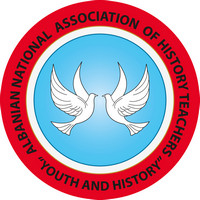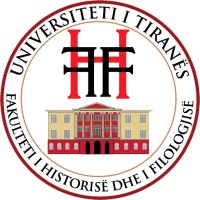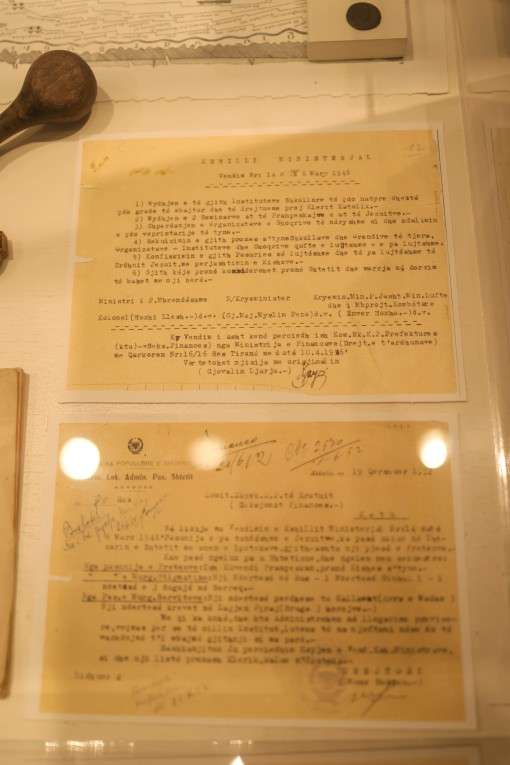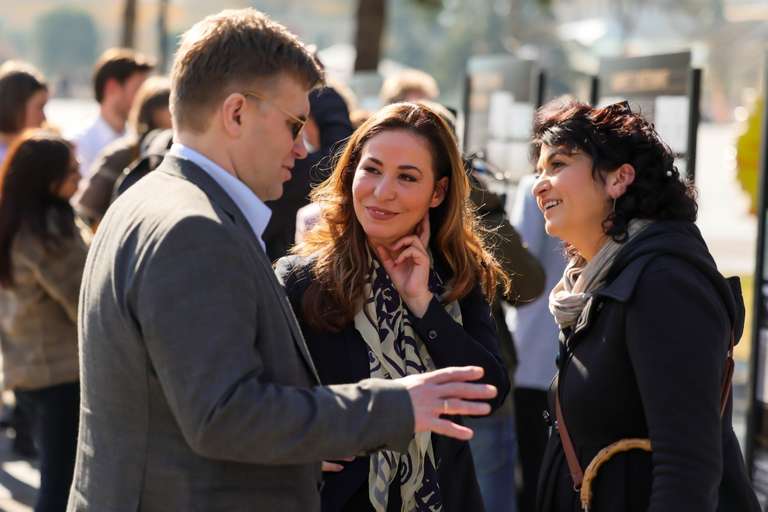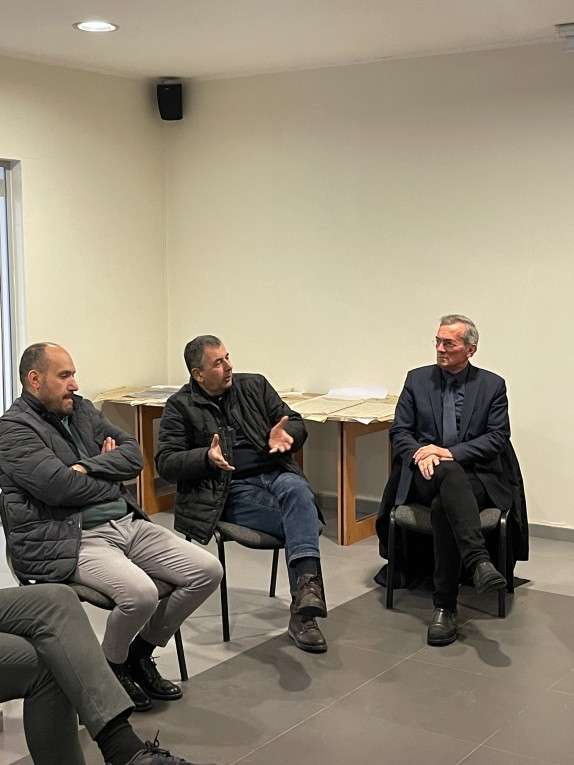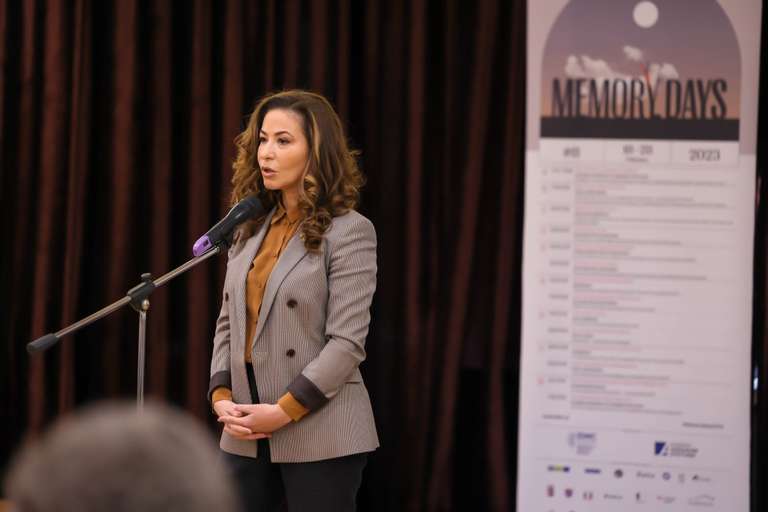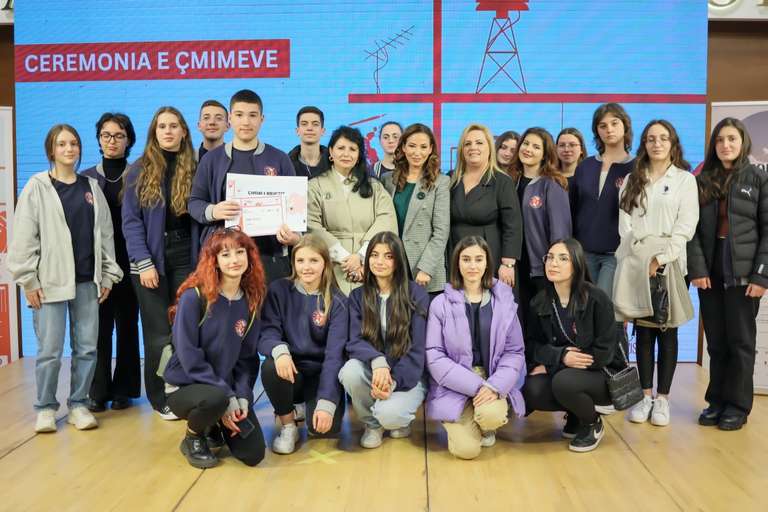Memory Days '23

Dear friends and colleagues,
The Institute for Democracy, Media and Culture (IDMC) and the Konrad Adenauer Foundation (KAS) invite you to the 8th edition of MEMORY DAYS that will be organized on 18–28 February 2023. This year the focus will be on the different experiences of former communist countries in dealing with the past. The Baltic countries, for example, have been considered successful for investigating and punishing the crimes of communism, but above all for creating adequate memory policies. Their firm attitude towards totalitarian regimes, Nazism and Stalinism, is considered one of the key factors of their rapid integration into the European Union (EU) since 2004.
Under the motto: "Dealing with the Past in Comparative Perspective – Lessons (not) Learned", especially one year after Russia's aggression against Ukraine, the topic of dealing with the communist past remains more relevant than ever. If the collective memory policies had been effective and if the decommunization process had been implemented, we would not have these authoritarian tendencies that are encountered today in many former communist countries in Europe. The most typical country for not confronting the past is authoritarian Belarus, where the opposition has been forced abroad, creating a government-in-exile led by Sviatlana Tsikhanouskaya. Ukraine, on the other hand, was among the first countries to carry out the process of decommunization (de-Sovietization), considering the communist past as one of the fundamental instruments that Russia could use against it. And Russia's unprecedented attack on February 24, 2022 proved him right. Would we have a war against Ukraine if the Russian society had completed the decommunization process? Probably not. But the fact is that even in 2023, countries that have not faced their past risk repeating the patterns of past authoritarian regimes. Above all, they are an open threat to peace and human rights everywhere in the world.
The analysis of the factors that have influenced the implementation of memory policies in different countries, the path that these countries have taken, their commonalities and features in different aspects compared to Albania, the advantages and disadvantages of the models followed, will be in center of MEMORY DAYS 2023 activities. On the occasion of the official opening of Albania's EU membership negotiations (July 2022), it is important to analyze how memory policies influence the strengthening of the common values of the European community, such as: human dignity, tolerance, freedom, equality and solidarity.
MEMORY DAYS is an annual activity that aims to keep alive the social debate and memory on the consequences of the communist regime in Albania and is organized by the Institute for Democracy, Media and Culture in partnership with the Konrad Adenauer Foundation and other memory institutions in the country and abroad, since October 2016.
The activities during the DAYS OF MEMORY aim to raise the awareness of the Albanian society about the consequences of the crimes of the dictatorship and to strengthen the dialogue on the past through debates, presentations of the newest publications on the dictatorship, exhibitions, international conferences, documentary screenings, etc.

In continuation of our tradition of cooperation, as in previous editions, we invite all organizations and institutions operating in the field of memory, public and non-public, museums and local and international memory initiatives, associations of former political persecuted, study centers etc., to become part of this edition.
Thank you!
IDMC staff
Summary
- 1st Day, 18 February 2023: MEMORY DAYS Opening Ceremony
- 2nd Day, 19 February 2023: Guided Tour of the Sites of Memory in Shkodra
- 3rd Day, 20 February 2023: Discussion "Dealing with the Past in Comparative Perspective"
- 4th Day, 21 February 2023: Exhibition "Children Behind the Bars in Communist Albania"
- 5th Day, 22 February 2023: Documentary "An Iron Box"
- 6th Day, 23 February 2023: Documentary "Women in Dictatorship"
- 8th Day, 25 February 2023: Open Forum "Remember – Generations in Dialogue"
- 10th Day, 27 February 2023: Workshop "Totalitarianism in Education"
- 11th Day, 28 February 2023: "Ask Your Grandparents 5" Awards
- Organizers
- Partners and Supporters
1st Day, 18 February 2023: MEMORY DAYS Opening Ceremony
From the Site of Witness and Memory in Shkodra, IDMC kicked off the 8th edition of MEMORY DAYS on 18 February 2023.
Shkodra, as the city in which you find many families and people who have something to confess about the difficult years of communism, welcomed the opening of this annual activity. With the participation of the Association of Former Prisoners and the Politically Persecuted of Shkodra, representatives of institutions, citizens, who even today continue to remember with difficulty and pain that dark period for Shkodra and Albania. Alongside their parents who sought to find their fathers, mothers and grandfathers on the walls of memory in this museum, there were also young people accompanying their parents who had brought them to learn and hear more about the past of our country.
The ceremony was greeted by the speech of the guests: Mr. Pjerin Mirdita, Director of the Museum of Witness and Memory, Mrs. Jonila Godole, Executive Director of IDMC, Mr. Tobias Rüttershoff, Director of the "Konrad Adenauer" Foundation, Mr. Guido De Sanctis, Head of the OSCE Presence in Albania, Mr. Bardh Spahia, Mayor of Shkodra, Mr. Zenel Drangu, Association of Former Prisoners and the Politically Persecuted of Shkodra, Mr. Marek Mutor, President of the Platform of European Memory and Conscience, Mr. Çelo Hoxha Historian, Director of the Institute for Studies of Communism Crimes & Consequences and Mr. Toomas Hiio, Historian, Estonian Institute of Historical Memory.
Ms. Jonila Godole, the head of the Institute for Democracy, Media and Culture, started her speech with the motto of this edition "Lessons (Not) Learned", taking as an example the Russian aggression towards Ukraine and emphasizing the consequences of not confronting the past. Mr. De Sanctis focused his speech on reliving the past with the main aim of remembering what happened with the focus of not repeating it again. Mr. Spahija also emphasized highlighting the historical truths, as they are. Each of the guests gave messages regarding the importance of commemoration, memory and confronting the past.
"MEMORY DAYS started 8 years ago, because to this day we still do not have an official day to remember those who resisted and were victims of communism. They were launched to exert pressure from below until we have a central memorial in the center of Tirana. Thus, MEMORY DAYS will continue until we succeed in fulfilling this promise, mostly for the younger generation, who are growing up without memory, but also to honor all the people who were politically persecuted and their families."
Another important feature of this activity was the presentation of the "European Gulag" exhibition, which, as Mr. Çelo Hoxha said, is the evidence of the work and cooperation of ISKK as part of the European Platform for Memory and Conscience. Mr. Hoxha described this exhibition as a symbolic sketch of the pain and suffering during the communist regime in Albania and in various European countries presented in it. During the presentation of this exhibition, the participants were introduced to the history of Soviet-style camps built in Europe after World War II, in commemoration of all those who suffered in these camps. The exhibition prepared by the European Platform of Memory and Conscience with the contribution of the Institute for the Study of the Communism Crimes and Consequences for the Albanian session, comes for the first time in Albania and will remain open to all visitors at the Site of Witness and Memory in Shkodra, the only one of its kind in the entire country.
This year’s Memory Days commemorate a well-known but little mentioned figure in Shkodra, Gaspër Çurçija. The communist persecution cut in half the talent of a man whose music would be mentioned even after many years, as it happened in this activity. The family members of Gaspër Çurçija also became part of this commemoration thanking the organizers for an initiative that should serve as a model for honoring and commemorating every victim who was executed by the unscrupulous communist regime.
The first evening of the Memory Days was concluded by the sounds of Gaspër Çurçija's music, curated and presented by the talented Jazz professor Gent Rushi.
2nd Day, 19 February 2023: Guided Tour of the Sites of Memory in Shkodra
The IDMC staff, friends and partners had the opportunity to get to know some of the heritage and historical memory treasures in Shkodra, during a tour through the city of the Albanian anti-communist resistance.
The historical Saint Stephen's Cathedral, turned into a sports palace during the dictatorship and the Franciscan Church converted into a cinema after the ban on religion, showed us a dark and almost unbelievable part of communist Albania as the only atheist country in the world. The Marubi Photography Museum and the one built on the premises of the Cathedral, took us back in time to some of the most decisive moments that shaped our present.
3rd Day, 20 February 2023: Discussion "Dealing with the Past in Comparative Perspective"
The panel discussion about the experience of former communist countries in their confrontation with the past and politics of memory, brought together guests from various European countries, in the presence of panelists Toomas Hiio, Volodymyr Viatrovych and Franak Viačorka, moderated by Enriketa Papa, to share with us the experiences of their countries.
The activity was welcomed by Christiane Hohmann, the EU Ambassador in Albania, Elisabeth Barsacq, the Ambassador of France, Volodymyr Shukrov, the Ambassador of Ukraine, and Tobias Rüttershoff, the Director of KAS Tirana, who congratulated the initiatives of IDMC and also expressed the will and desire to continue to strongly support them.
Tsz Wai So presented to the attendees the "Pan European" memorial devised by him in Brussels, in honor and commemoration of all the victims of totalitarianism in Europe.
4th Day, 21 February 2023: Exhibition "Children Behind the Bars in Communist Albania"
The Institute for Studies of Communist Crimes and Consequences (ISKK) and IDMC presented the exhibition "Children Behind the Bars in Communist Albania" as a continuation of the activities of the MEMORY DAYS.
Through documented facts and testimonies from survivors, the author of the exhibition and historian Brisejda Lala sheds light on the daily life of minors under the former communist regime in Albania.
"The most important thing that I would highlight from the exhibition is the fact that we prove with documents that in the period 1944–1954 internments in Albania were carried out in the absence of an administrative law, for the entire population including children."
"Not all children were registered when they entered these internment camps, so it remains for historians and new researchers to carry out this research work. Some of the families’ members are no longer alive, so it is a challenge to find the total number of these children, especially who lost life in camps with barbed wire, like in Tepelena or in prisons after 1944."
The exhibition was greeted by Dr. Tobias Rüttershoff from the Konrad Adenauer Stiftung in Albania, as a supporter of the project, and Gjergj Hani who was still a 16-year-old child when he was brought to the dock of the accused as an "enemy of the people".
The exhibition "Children Behind the Bars in Communist Albania" welcomed visitors until February 26 in "Skanderbeg" square in Tirana.
5th Day, 22 February 2023: Documentary "An Iron Box"
Another event in this year's MEMORY DAYS was the screening of the documentary "Iron Box" by the Austrian director Nils Olger.
The documentary is built on the trail of photographs found in an iron box which Olger's grandfather, a former physician and Nazi soldier, had taken during World War II. Decades later, his nephew travelled to the same places to meet the people who still have memories from that time, telling us how to approach the past totalitarian regimes.
A discussion followed between Mr. Olger and Albanian writer Bashkim Shehu, the son of former communist Prime Minister Mehmet Shehu. The panelists talked about confronting the inherited biography and how it shaped their work and worldview.
In 1949, 14 people were killed by the communist regime in the Valmir Pass in Mirdita, by a Supreme Court ruling following a recommendation from Mehmet Shehu. 74 years later, the nephew of one of the victims, Gjergj Marku, extended his hand to reconcile with the son of the former prime minister. Marku said that Bashkim Shehu is not to blame for the crimes committed during the communist regime and for the involvement of his father.
6th Day, 23 February 2023: Documentary "Women in Dictatorship"
The documentary "Women in the Dictatorship – Beyond the Myth of Emancipation" was screened at the ArTurbina theater in the context of MEMORY DAYS.
The work of Fatmira Nikolli and Jonila Godole managed to "dismantle" the myth of women's emancipation in communist Albania, arguing that any effort made in this regard was a result of the need for labor force, rather than the desire for gender equality.
The second part of the evening included a panel discussion centered on the personal stories of Fatbardha Mulleti Saraçi and Vera Bekeshi, who experienced in various forms the violence perpetrated by the regime towards Albanian women. Meanwhile actress Rajmonda Bulku talked about the inequality and pressure that women encountered in communism.
Communist Albania created the myth of women's emancipation in education, employment and career. But did that emancipation actually occur during the dictatorship, or was it used simply as propaganda to mask the exploitation of women in many sectors of life and production?
The documentary, with subtitles in English, aims to unravel the myth of emancipation and the role that ideology itself had in the way women were used in totalitarian society.
Edlira Çepani, Klejdi Këlliçi, Fatmira Nikolli and Armanda Hysa discussed the issue further under the moderation of Ergys Mërtiri.
8th Day, 25 February 2023: Open Forum "Remember – Generations in Dialogue"
On February 25, as part of the MEMORY DAYS activities, an open meeting/forum took place in Shkodra at the Site of Witness and Memory Museum, "Remember – Dialogue between the Generations".
Representatives of the persecuted families, Mr. Maxhid Cungu, Mrs. Albina Dabërdaku, Mr. Mensur Bushati, Mrs. Fatbardha Bekteshi and Mr. Florian Bjanku confessed to the young people present their stories, challenges, the suffering and pain they and their loved ones had gone through under the communist regime. The talks emphasized the importance of historical truths and collective memory.
The discussions continued with the evidence of the irreplaceable and vital role youth plays in building a society. Although it did not perform the necessary catharsis after the 90s, today young people must guarantee that the democratic system in which we live will resist the ghosts of the past or the consequences of the lack of enforcement of transitional justice.
The young participants recounted pieces of stories learned from family members who had shown them what life was like in communism.
Guests at this meeting talked and wept as they remembered the sufferings of family members, the complete disregard of fundamental rights that every person should enjoy, how a family could be persecuted and punished collectively because of some other relative (it is illegal in a democratic society with a functioning rule of law), how their grandparents' was erased by the system because only those who thought and acted as the regime wanted, were accepted.
Between personal confessions, historical statements, the conversation outlined concrete legal explanations about the human rights that young people enjoy today but were once denied. Each of the guests, which included lawyers, analyzed the mechanisms of the old totalitarian system.
A key message was the need to raise awareness about society and the importance of confronting the past as a way to ensure it will never be repeated.
Memory must be passed over the generations, the victims must be remembered and lessons must be learned from history.
10th Day, 27 February 2023: Workshop "Totalitarianism in Education"
MEMORY DAYS activities continued with the training of history teachers from all over Albania, bringing ideas and exchanging views on how the history of totalitarian regimes should be taught in school.
Together with EuroClio and ALBNA, the participants compared the ways their colleagues from the region reported the developments in the former Yugoslavia. A workshop focused on the use of visual resources in schools to promote critical thinking and reflecting on the past, an experience the teachers may use to refer to sensitive topics such as the communist period in Albania.
In conclusion, local teachers exchanged experiences about addressing these topics in classes and the importance of projects that stimulate students' interest with regard to the past. The head of the "KARTA" foundation, Alicia Gluza, spoke about competitions as a means to foster the research work of students in Poland over the communist period. Jonila Godole, director of IDMC, showcased similar work over the years with young people in Albania.
11th Day, 28 February 2023: "Ask Your Grandparents 5" Awards
MEMORY DAYS 2023 could not conclude any better than with the announcement of the winners of the coolest youth competition, "Ask Your Grandparents".
10 Prizes awarded:
- 2 First Prizes
- 2 Second Prizes
- 2 Third Prizes
- 1 Network Prize
- 3 Motivation Prizes
The first 7 winners will have a trip through sites of memory in Europe, and more. Meanwhile, 50 young people, whose work the jury selected in the second phase, will also make a trip to similar sites of remembrance in Albania.
Girls and boys from around Albania competed with over 150 works in total, in multimedia, visual arts and storytelling, "inspired by an object".
At the closing ceremony we had the honor and pleasure to have the First Lady Armanda Begaj present to award the first prize. Mrs. Begaj thanked the students and teachers for the emotions conveyed with their works, as well as for their help in making sure history is not forgotten.
German ambassador to Albania, Mr. Peter Zingraf, expressed excitement over the work of the second place winner, saying that a similar object brought to mind his father. While Katja Fausser proposed to all the winners to apply for the European History Competition, in the fall of this year.
In closing, we thank all the participating students and teachers for their tireless work, the creative and reflective process to achieve quality entries.
Other projects await us!
Organizers


Partners and Supporters




